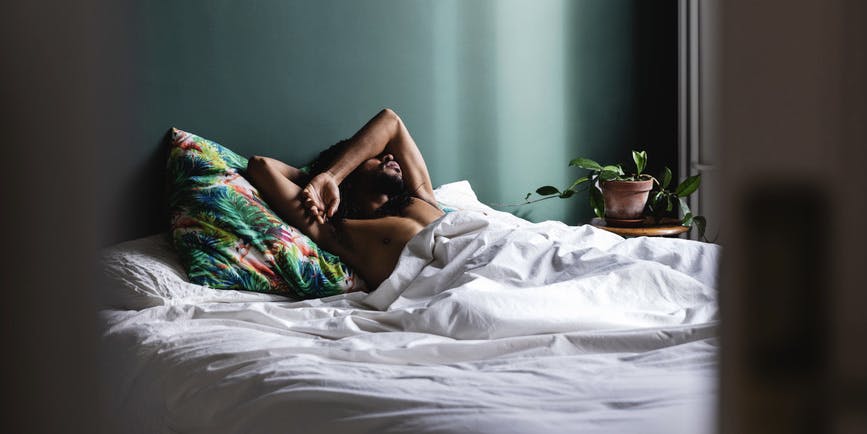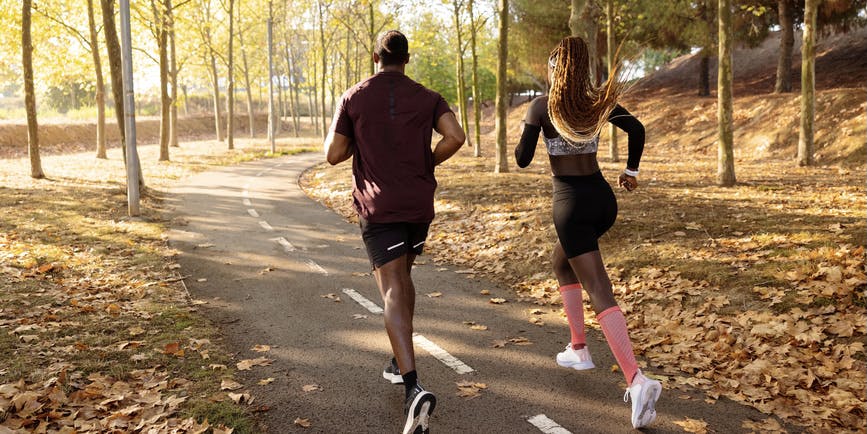How to transition your body for cooler weather

Topics
Welcome to the Dr. B Weekly Roundup, a curated weekly overview that cuts through the noise to deliver vetted reads on Covid-19 and beyond. In L.M. Montgomery’s Anne of Green Gables, the beloved eternal optimist Anne Shirley proclaims that she’s so glad to live in a world where there are Octobers. Yet many of us feel existential dread as leaves fall, the sky darkens and the temperature drops. So this week, we cover the latest on how to make sure your body's transition to autumn is as healthy, restorative and joyful as possible. Grab a mug of something warm + settle into…
- The Checkup: slowing + stocking up
- Cooling Down: body + sleep + spirit
- Covid-19: how Covid's changing us
The Check-Up:
- Carbing up for winter? Find out which bread is healthiest for you
- Sometimes grit is not a virtue, and the winner is the one who quits
- These researchers promise you can fix your marriage in seven days
- Hi! A study finds coffee prevents heart problems + premature death!
- An immunologist tackles pregnancy + Covid vaccine misinformation
- Not accepting transgender teens = individually + socially dangerous
- Eek! Sobering reasons why the U.S. fails at infection protection
- Since you’re already brewing tea, here’s why (+ how!) to cook with it
- A moving new film takes you through the world in a wheelchair
- Overshared + feeling vulnerable? Here’s some healthy perspective
Try to get in those zzz's

Scary news for new parents + anyone who faces unceasing morning deadlines! A new study found that sleep deprivation can instigate chronic inflammation, increasing the risk of chronic conditions like cardiovascular disease and type 2 diabetes! Tracking 14 healthy adults for six weeks (a long time for a sleep study), researchers found that even mild sleep deprivation increased production of monocytes—inflammatory immune cells—and altered the immune cells’ DNA to be more inflammatory by nature. Further study (on mice) showed that ten weeks of restored sleep did not return monocytes to healthy levels.
So it’s extra important to aim for seven to eight hours of sleep every night. The longer, darker nights should encourage hibernation. But if you struggle with sleep, maybe try one of these proven tips. And read more about the study at CNN.
Remember to cool down...

Love to feel the breeze on your bare skin while moving + grooving outside? Then the dropping temperatures probably hit you hard. And if you don't make seasonal adjustments, working out al fresco during darker, colder hours may do more harm than good, too. To safely transition, experts recommend that you wear a headlamp when it’s dark (so you don’t trip, fall and break something!) and layer up with moisture-wick clothing. Hydrate even if you don’t feel sweaty—our bodies respond to cold by constricting blood vessels so we may not feel thirsty, but still need those electrolytes. And know when it’s safer to stay home.
That article on quitting in The Checkup gives a strong argument for abandoning the track. Want even more reasons + recommendations? Read here.
You can find joy in the darkness

Scholars have long known that literal darkness affects us, prompting unethical behavior that increases crime at night + decreasing serotonin levels that mess with our happiness. But figurative darkness works against us, too—seasonal stress weakens our immune system + increases the risk of chronic illness. If you’re mourning a loss or combating pandemic-related anxiety, you may find it challenging to channel feelings of safety, freedom and ease. But even small moments of joy make a difference, we promise.
The most effective way to get them? Work on strengthening bonds with friends and family—spontaneous joy often happens around loved ones. Map out steps to achieving a meaningful goal (no matter how small), then fold them into your schedule. Use your skills to help someone else. Get even more ideas at Time. Or if mourning the literal impending darkness, explore ways to embrace fall with mindfulness + resilience.
The latest: pandemic
Covid might have changed people’s personalities, study suggests (The Guardian). A study of over 7,000 people between the ages of 18 and 109 found that the pandemic caused a decline in younger people’s “extraversion, openness, agreeableness and conscientiousness.” Our personality is generally malleable earlier in life. The pandemic stressed out everyone. But for younger people, disruptions in milestones + lack of social development has led to personality changes that typically fluctuate in a decade—not within a year or so. Bottom line? Show a little extra patience + support to the young adults in your life. They need it.
Long COVID has forced a reckoning for one of medicine’s most neglected diseases (The Atlantic). Long Covid falls under the diagnostic parameters of myalgic encephalomyelitis (ME), a multi-systemic post-viral illness that affects up to 2.5 million people in the U.S. yet has lacked funding for research and awareness. Conservative estimates assume that Covid long haulers have doubled the ME population in the last three years and, meeting the same dismissal by healthcare professionals, they’ve relied on patients with ME for support. The silver lining? The surge in new patients has thrust the need for post-viral research into the spotlight. But millions will suffer while the healthcare system gets an overhaul. Read the article for powerful personal stories + updates.
Study confirms link between COVID-19 vaccination and temporary increase in menstrual cycle length (NIH). An analysis of data given (with consent) from almost 20,000 users of the fertility tracking app Natural Cycles found that Covid-19 vaccinations increased length of menstruation… but by less than one day on average. Getting two jabs within one month increased the likelihood of a slightly longer period. Of those whose cycle extended more than 8 days, 6.2% were vaccinated and 5% unvaccinated. All vaccinated people reverted to their base length in their next cycle. This should appease vaccine hesitancy + worry in those who notice a difference.
Topics
Sign up for the free Dr. B newsletter for a weekly report on the latest in healthcare + research-based advice for staying healthy and mentally well.